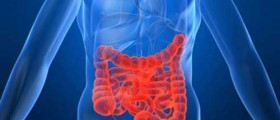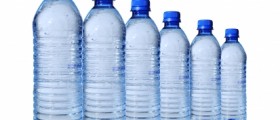Gastroenteritis is inflammation of the stomach, small intestine and large intestine which develops due to an infection. This results in bouts of diarrhea and vomiting. In this article we will discuss gastroenteritis in adults.
Gastroenteritis Overview
Gastroenteritis is a common infectious disease usually caused by Norovirus. Rotavirus, adenovirus and Astrovirus can also lead to gastroenteritis. Bacterial gastroenteritis is often a result of food poisoning and can be caused by different species of bacteria.
Gastroenteritis is highly contagious and can be transmitted by fecal/oral route when bacteria found in stool are transferred to the mouth. The infection usually spreads due to poor personal hygiene, when a person does not wash his/her hands after using the bathroom and contaminates everything he/she touches. Ingestion of contaminated food and water is a common cause of gastroenteritis.
Symptoms of Gastroenteritis
Symptoms of gastroenteritis may vary in severity. Some individuals have only mild symptoms that usually resolve within a few days without a treatment. On the other hand, some patients with severe symptoms and individuals susceptible to complications due to other illnesses may require hospitalization to avoid fatal outcome.
The main symptoms of gastroenteritis are diarrhea and vomiting. Headache, fever, abdominal cramps, loss of appetite, nausea and weakness may occur too. Symptoms usually last for 1 to 7 days. One complication of gastroenteritis is dehydration, which may occur due to diarrhea. Treatment for Gastroenteritis
Gastroenteritis rarely requires treatment with medications. The most important thing is to maintain the body hydrated since plenty of fluids are lost through diarrhea and vomiting. The patient should drink at least 2 liters of water per day plus 200ml of water after each episode of diarrhea.
Also, rehydration salts are recommended to elderly people and other individuals susceptible to complications of diarrhea. Rehydration salts help to replenish salt, glucose and other electrolytes that are lost in the stool. However, this treatment is not recommended to people suffering from kidney problems.
Proper diet is also important in treatment of gastroenteritis. Foods high in fat and sugar should be avoided because such foods can aggravate the symptoms. It is recommended to eat light plain foods such as rice and wholemeal bread and to have several smaller meals a day instead of three large ones.
Gastroenteritis is treated with medications only when symptoms are severe. The condition is commonly treated with antidiarrheal medications to manage severe diarrhea.
Loperamide is the most commonly used antidiarrheal medicine that helps to slow down the movement of bowel contents. It may also promote water absorption from the gut. However, loperamide causes side effects such as constipation and dizziness. Rarely, it may lead to cramps, drowsiness, bloating and skin rash.

















Your thoughts on this
Loading...